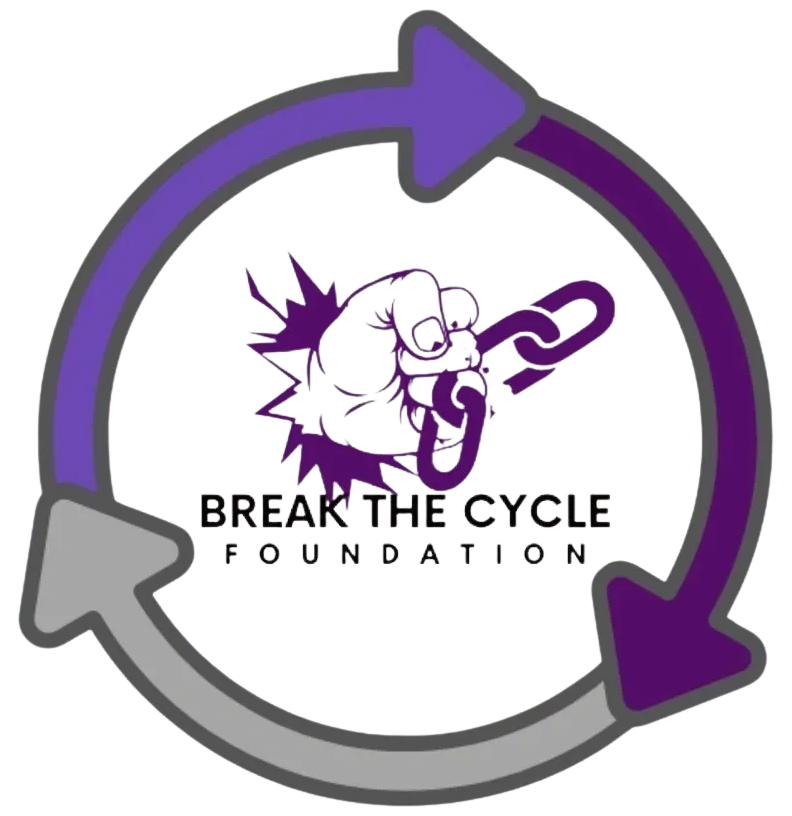Benefits of Group Therapy
Group therapy is a key component of recovery for those suffering from substance use disorders. It provides an environment where individuals can share experiences, learn from one another, and gain support. At Break The Cycle Foundation, we believe in the power of group therapy to support and enhance recovery.
Support and Accountability
Group therapy offers a unique form of support and accountability for those in recovery. Being part of a group allows individuals to connect with others who are facing similar challenges. This connection fosters a sense of belonging and reduces feelings of isolation and shame, common among those struggling with addiction (NCBI Bookshelf).
Support from peers creates a network of accountability. Group members provide feedback and encouragement, helping each other stay committed to their recovery goals. This mutual support can be a powerful motivator, as members are held accountable not only to themselves but to their peers as well (Atlanta Specialized Care).
| Benefit | Description |
|---|---|
| Support | Group members share experiences and provide emotional support. |
| Accountability | Members hold each other to their commitments, enhancing motivation. |
| Belonging | Reduces feelings of isolation by fostering a sense of community. |
Varied Perspectives and Coping Strategies
One of the significant advantages of group therapy is the diversity of perspectives and coping strategies that members bring to the table. Each individual has unique experiences and insights that can offer valuable lessons to others in the group.
Sharing different viewpoints helps members see their situations from new angles and develop a broader understanding of their struggles. This variety of perspectives can lead to discovering new coping strategies and techniques that might not have been considered otherwise.
Moreover, exposure to different stages of recovery within the group can be incredibly motivating. Witnessing the progress of others instills hope and demonstrates that recovery is possible. It also allows members to learn practical techniques for managing their own recovery process, enhancing their toolkit for dealing with substance use.
| Benefit | Description |
|---|---|
| Varied Perspectives | Allows members to gain new insights and understand their struggles from different angles. |
| Coping Strategies | Members can learn new techniques and strategies for managing their recovery. |
| Inspiration | Seeing the progress of others can provide motivation and hope. |
For those considering different therapeutic options, understanding the importance of combining therapies can further enhance the recovery journey. It’s crucial to tailor treatment to individual needs, leveraging both individual counseling and group therapy for optimal outcomes (NCBI).
In summary, the benefits of group therapy in treating substance use disorders are manifold. At Break The Cycle Foundation, we recognize the value of providing a space where members can offer support, share diverse perspectives, and learn effective coping strategies. If you’re exploring recovery options, discover more about individual counseling for addiction and relapse prevention planning on our website.
Importance of Combining Therapies
Individual Counseling and Group Therapy
When it comes to substance use recovery, combining individual counseling with group therapy often provides the most well-rounded care. Individual therapy allows us to address specific issues and tailor treatment to our unique needs (Atlanta Specialized Care), while group therapy offers a sense of community and shared experiences.
In individual counseling, we can work on personal challenges, set realistic recovery goals, and develop personalized strategies to prevent relapse. For more about what to expect in individual sessions, visit individual counseling for addiction: what to expect.
Group therapy, on the other hand, allows us to receive support and encouragement from others who are in similar situations. This community aspect can enhance our commitment to maintaining long-term sobriety. Group settings also provide varied perspectives and coping strategies, which can be invaluable in addressing co-occurring mental health disorders like depression and anxiety (American Addiction Centers).
Tailoring Treatment to Individual Needs
One of the primary benefits of combining therapies is the ability to tailor treatment to our specific needs. Individual sessions help identify personal triggers and emotional challenges, while group therapy offers a platform to practice new skills in a supportive environment.
Group therapy is particularly effective in treating substance use because it addresses issues such as isolation, denial, and shame. Witnessing others open up encourages us to be more vulnerable and honest, leading to deeper emotional healing (San Antonio Recovery Center).
A balanced approach that includes both individual and group therapy ensures comprehensive care. This dual approach helps us tackle addiction-related problems more effectively, offering a better chance for sustained recovery. For more information on setting recovery goals, explore setting realistic recovery goals with your care team.
Combining these therapies optimizes the treatment process and provides a supportive structure necessary for overcoming substance use. For a deeper understanding of the therapeutic process and how it aids recovery, visit how structured counseling helps break the cycle of addiction. Utilizing both individual and group sessions enables a holistic approach, paving the way for successful and sustained recovery.
Journey to Recovery
Navigating the path to recovery from substance use disorder requires a combination of patience, dedication, and courage. This journey involves significant lifestyle changes, which can indeed feel overwhelming. With the right resources and support from the Break The Cycle Foundation, we can work together to achieve lasting recovery.
Patience, Dedication, and Courage
We understand that recovery from substance use disorder isn’t a quick process. It requires patience, dedication, and courage at every step. These qualities become the foundation upon which we build our recovery.
- Patience: Progress can be slow, and setbacks may occur. Remaining patient with ourselves allows us to accept that each small step forward is a victory.
- Dedication: Committing to a treatment plan, whether it includes group therapy or individual counseling, is crucial. Dedication to the process ensures that we stay focused on our long-term goals.
- Courage: Facing our addiction head-on takes immense bravery. It requires confronting uncomfortable truths and being open to change.
Seeking help is the first and often the hardest step towards recovery (Atlanta Specialized Care). Whether it’s through structured counseling or group sessions, having the courage to ask for help propels us forward in our recovery journey.
Overcoming Lifestyle Changes
Adjusting our lifestyle to support a sober life is vital. This involves many changes, both big and small, that can sometimes feel overwhelming. However, with support and guidance, we can manage these changes effectively.
-
Creating New Habits: In the process of recovery, we develop new habits that promote a healthy lifestyle. This might include finding new hobbies, engaging in physical activities, or attending regular therapy sessions. By establishing these habits, we replace old, harmful behaviors with positive ones.
-
Building a Support Network: Engaging with a support network is critical. Participating in group therapy sessions allows us to connect with others who understand our struggles. This peer support provides a sense of belonging and accountability, which is proven to help maintain abstinence. Learn more about the benefits of peer support.
-
Managing Triggers: Part of the recovery journey involves learning to manage triggers effectively. Group therapy sessions offer a safe space to share coping strategies and receive feedback from peers. By discussing what works and what doesn’t, we gain valuable insights that help us avoid relapse. Explore our guide on relapse prevention planning.
| Change | Strategy | Support |
|---|---|---|
| Establishing New Habits | Find hobbies, physical activities | Structured Counseling |
| Building a Support Network | Participate in group therapy | Peer Support |
| Managing Triggers | Share coping strategies | Feedback from Peers |
At Break The Cycle Foundation, we focus on providing comprehensive treatment that addresses both the emotional and practical aspects of recovery. By working with a dedicated care team, we can set realistic recovery goals and tailor our treatment plan to meet our unique needs (Setting Realistic Goals). Each step we take in overcoming lifestyle changes is a step closer to a healthier, sober life. For more information about tailored treatment options, visit our resource on combining therapies.
Effectiveness of Group Therapy
Group therapy is a powerful tool in the journey of recovery from substance use disorder. Here, we explore how it effectively addresses the complex emotional challenges tied to addiction.
Addressing Isolation and Shame
Isolation and shame are common feelings among individuals struggling with substance use. Group therapy fosters a strong sense of belonging and universality among participants, significantly reducing these feelings by promoting empathy and understanding within the group. Witnessing others’ recovery journeys provides members with hope and the realization that they are not alone in their struggles.
Benefits of Group Therapy in Reducing Isolation and Shame
| Benefit | Description |
|---|---|
| Sense of Belonging | Group members feel part of a community. |
| Universality | Helps members see they are not alone. |
| Empathy | Encourages mutual understanding and support. |
For more insights on the psychological aspects of addiction, read what is substance use disorder and how is it treated.
Confronting Addiction-Related Problems
Group therapy addresses not only the isolation and shame but also various addiction-related problems such as depression and anxiety. By sharing experiences and coping strategies, members can learn from each other and find solace in mutual support. It has been shown that group therapy can treat various disorders at rates comparable to individual therapy (robinrecovery).
How Group Therapy Helps in Addiction Recovery
| Key Aspect | Description |
|---|---|
| Peer Support | Positive feedback and mutual support within the group. |
| Accountability | Members hold each other accountable for their actions. |
| Coping Strategies | Learning new ways to handle substance use triggers. |
| Confronting Harmful Behaviors | Directly addressing and challenging harmful actions. |
Groups in substance abuse treatment provide a culture of affiliation, confrontation, support, gratification, and identification. This holistic approach ensures that members remain abstinent and committed to recovery. The greater the amount, quality, and duration of treatment, the better the client’s prognosis.
For more details on counseling strategies and relapse prevention techniques, check out how structured counseling helps break the cycle of addiction and relapse prevention planning: core elements to include.
Enhancing Recovery Through Groups
Benefits of Positive Peer Support
Group therapy for substance use is an essential tool in our recovery journey. One of the significant advantages is the positive peer support it provides. Positive peer support and pressure in group settings increase the likelihood of maintaining abstinence from substances. When we attend group therapy, we connect with others who understand our battles, creating a sense of camaraderie (NCBI Bookshelf).
In a group environment, we witness the recovery progress of our peers, which offers social reinforcement and leverage. These factors play a crucial role in helping us stay committed to our recovery goals and abstain from substance use. For more on the foundational aspects of this commitment, explore our article on how structured counseling helps break the cycle of addiction.
Instilling Hope and Offering Feedback
Group therapy sessions are places where we can find hope and receive constructive feedback. The diverse perspectives and coping strategies shared in these sessions help us navigate daily life challenges without resorting to substance use. Witnessing the progress of peers can instill hope and motivate us to continue our recovery journey.
Moreover, within group settings, antisocial and self-defeating behaviors common among us with substance use disorders can be effectively confronted and addressed. The supportive environment allows us to act as quasi-therapists, providing and receiving the discipline and support needed to stay accountable. To understand more about how individual goals are aligned in such therapeutic environments, visit our guide on setting realistic recovery goals with your care team.
| Benefit | Description |
|---|---|
| Positive Peer Support | Increases abstinence, offers reinforcement and leverage (NCBI Bookshelf) |
| Instilling Hope | Witnessing progress fosters motivation and resilience (San Antonio Recovery Center) |
| Offering Feedback | Constructive criticism helps address damaging behaviors (NCBI Bookshelf) |
Taking part in group therapy helps broaden our perspectives and confront addiction-related issues. The collaborative environment empowers us with social skills and the necessary tools to navigate our recovery path. For detailed insights on the role of individual therapy in conjunction with group sessions, see our article on individual counseling for addiction: what to expect.
By embracing the support and feedback from our peers in group therapy, we can make substantial strides towards recovery and long-term sobriety.
Optimizing Group Therapy
Optimizing group therapy for substance use involves considerations of group size, therapist selection, and specific functions that therapists play to ensure effective and supportive sessions. At Break The Cycle Foundation, we strive to provide the best possible conditions for group therapy, ensuring our clients receive top-notch support on their journey to recovery.
Group Size and Therapist Selection
The effectiveness of group therapy can be significantly influenced by the size of the group and the careful selection of the therapist. A well-structured group size allows for meaningful interactions and individualized attention, which is crucial in the treatment of substance use disorders. Generally, a group size of 6 to 12 participants is considered ideal for fostering a sense of community and ensuring each member’s voice is heard.
| Group Size | Advantages |
|---|---|
| 6-8 | More intimate, fosters deeper connections, allows personalized attention |
| 9-12 | Balanced interaction, diverse perspectives, enhanced group dynamics |
The selection of therapists is equally important. Therapists should be experienced in handling group dynamics and possess skills to manage diverse personalities. Evidence suggests that individuals with high extroversion and conscientiousness are more likely to succeed in group therapy, while high neuroticism can predict lower success rates. Therefore, therapists must assess clients carefully to form a cohesive and supportive group.
For more on how to choose the right therapist, visit our guide on understanding the intake and assessment process.
Therapist Functions to Enhance Therapy
Group therapists fulfill various essential functions to enhance therapeutic factors within a group setting. At Break The Cycle Foundation, our therapists focus on creating a safe and supportive environment where participants can openly share their experiences and feelings.
Key Therapist Functions Include:
- Monitoring Group Norms: Ensuring that the group norms are respected and maintained. This includes promoting confidentiality, mutual respect, and active participation.
- Openness and Non-Defensiveness: Therapists should be open to feedback and non-defensive in their interactions. This helps build trust and rapport within the group.
- Maintaining Focus: Keeping the group’s focus on the clients’ goals and the therapeutic process. This involves guiding discussions and intervening when necessary to keep the group on track.
- Ethical Considerations: Addressing confidentiality and ethical issues is paramount. Clear consequences for violating confidentiality agreements should be established to maintain a safe environment (NCBI).
The main goal of group therapy is to help participants apply learned skills to their life outside of therapy, enabling behavior corrections, implementing interpersonal skills in relationships, and utilizing preventative measures to avoid relapse (American Addiction Centers).
For a comprehensive understanding of individual versus group counseling, refer to our article on individual counseling for addiction: what to expect.
By optimizing group size and therapist selection, and focusing on essential therapist functions, Break The Cycle Foundation ensures a nurturing and effective group therapy experience for our clients. For more on setting realistic recovery goals, click here.







